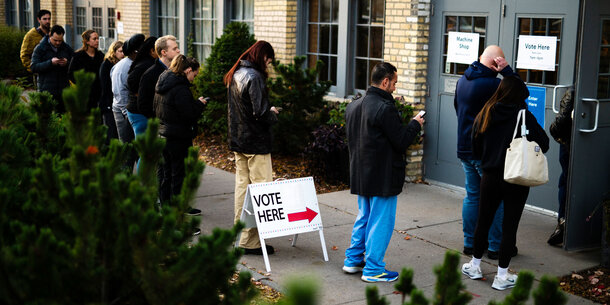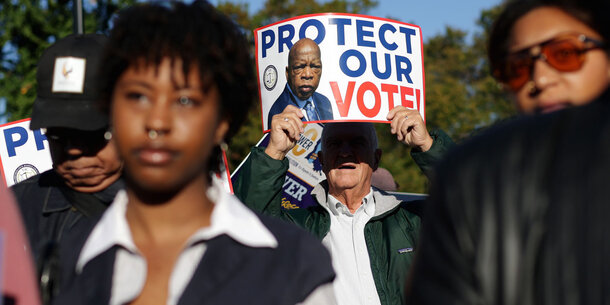The 2018 midterm was a landmark year for redistricting reform, with voters passing measures aimed at curbing gerrymandering in Missouri, Michigan, Colorado, Ohio, and Utah.
In some of these states, however, politicians and party officials immediately began trying to dismantle voter-approved reforms, aiming to restore their own power and protect their own interests during map-drawing.
In Missouri, lawmakers want to dismantle the Clean Missouri redistricting reforms, which passed with 62 percent of the vote in 2018. Under the cover of a stay-at-home order during the Covid-19 pandemic, the Republican-controlled General Assembly passed a proposed constitutional amendment that will appear on the November ballot as Amendment 3.
Among other things, Amendment 3 would weaken important protections for Missouri’s communities of color and take the teeth out of provisions requiring partisan fairness when drawing maps. It also eliminates a new independent nonpartisan state demographer position and limits the public’s ability to challenge bad maps in court. All told, Amendment 3 would resurrect Missouri’s deeply flawed redistricting system — a system that was rife with deadlock and abuse and that Missourians across the political spectrum eagerly replaced in 2018.
Remarkably, however, the summary statement that Republican legislators drafted to describe Amendment 3 on the ballot makes no mention of any of these changes. Not only does the ballot language fail to inform voters that they would be repealing the reforms that they had just passed, but it gives the false impression that the amendment is doing the exact opposite, advancing independent and fair redistricting with strengthened guards against racial and partisan gerrymandering.
A group of citizens have brought a lawsuit to make sure voters have the information they need to reject Amendment 3 and maintain independent and fair redistricting. A Missouri trial court has already sided with these citizens and ruled that the General Assembly’s ballot language was deceptive, unfair, and insufficient, finding that it failed to inform voters that Amendment 3 “would eliminate the legislative redistricting rules Missourians overwhelmingly adopted” and “replace them with a redistricting process similar in substance to the one they just voted to abandon.” This decision has been appealed to the Missouri Court of Appeals, where it will be heard on August 28.
The Brennan Center, together with other national and Missouri-based civil and voting rights organizations, filed a friend-of-the-court brief urging the court to uphold the ruling striking down misleading language and highlighting just how detrimental Amendment 3 would be to voting rights for communities of color. A bipartisan group of former lawmakers, including former U.S. Sens. John Danforth and Claire McCaskill, also submitted a friend-of-the-court brief, arguing that the court should closely scrutinize Amendment 3’s ballot language because the legislature has a personal interest in maintaining its power to gerrymander.
This case follows other efforts to undermine citizen-approved reforms in the states. In Michigan, for example, Republican legislators sued after voters created an independent redistricting commission, asking a federal court to declare the commission unconstitutional. The suit was unsuccessful, meaning that Michigan will use an independent commission for the first time during next year’s redistricting process. In Utah, lawmakers threatened to eliminate key components of the voter-approved reforms, but after sustained pressure from advocacy groups, legislators settled on a compromise that preserved key components of the new redistricting commission.
Now, it’s Missouri’s turn. Independent and fair redistricting is incredibly popular, which is why the proponents of Amendment 3 are leaning heavily on deception to pass a proposal that offers the public no benefit. It will be up to the Missouri Court of Appeals to see through the blatant lies and not allow unfair, inaccurate ballot language to mislead voters.




